China's governance model: The way forward for today's world?
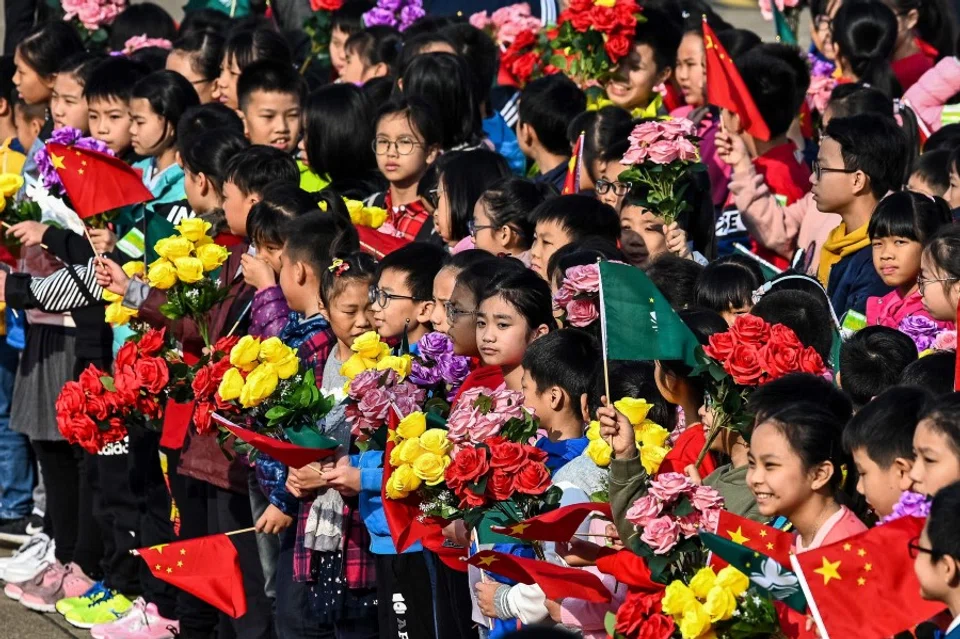
The world is entering a phase of widespread protest. Waves of protests take turns to hit the shore, each with varying demands, and increasingly innovative and violent modus operandi. Authorities are often left helpless in the face of protests - governability is becoming the biggest challenge for countries around the world.
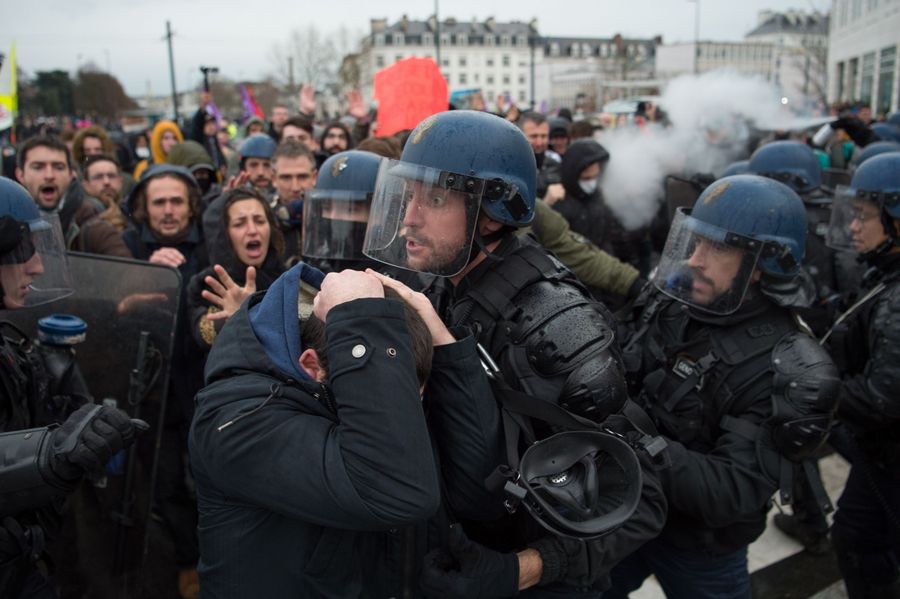
The six-month long violent protests in Hong Kong seem to take the lead in this area, providing protest movements of the world with a model to emulate. For example, protestors of the Catalan independence movement paralysed the airport, following the Hong Kong airport "fly with you" (和你飞) and "stuck with you" (和你塞) sit-ins. In Chile, protesters angry over Santiago Metro's subway fare hikes vandalised and set ablaze many stations of the Santiago Metro network. Enraged that the parliament passed a law that would reduce the authority of the corruption commission, Indonesian students took inspiration from the Hong Kong protests, disseminating pamphlets on handling tear gas and using the Internet for crowdfunding. France's nationwide strike and mass rallies over major changes to the pension system involved heavy disruptions to the transportation system, just like the protests in Hong Kong.
The shape of recent protests
This century has seen its fair share of protests: to name a few, the Arab Spring in the Middle East, Occupy Wall Street in New York City, France's yellow vest movement, the climate movement, anti-World Bank and IMF riots, and the #MeToo movement that has taken Hollywood and the world by storm. Not to mention agitations of every shade espousing ideologies from left- and right-wing extremism, populism, anti-immigration, anti-globalisation, to separatism, religious fundamentalism and terrorism.
As these movements are often spontaneous, they are not centrally organised or have a recognised leader. Social platforms and encrypted communication applications are used for decision-making and coordination.
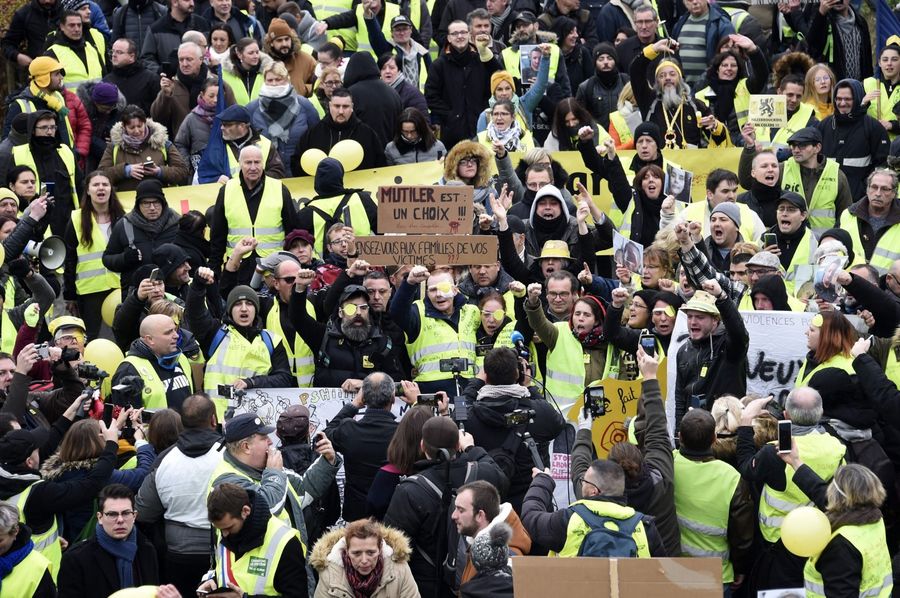
Protesters freely join any chat group they trust and are interested in as their source of information. They autonomously determine their role and behaviour within the social movements. Some march up the streets and confront the police; some take charge of internet public opinion and publicity; while others petition for international assistance and the participation of external forces - everything from information dissemination to resource distribution, and even emergency stations and counselling services, are taken care of. Protesters protest, and also cooperate. Yet, these protests often don't achieve tangible outcomes.
State of disarray
(i) Wide spectrum of demands
A few reasons account for the crisis of governability. Firstly, the advent of globalisation has diversified the values, ideologies and political views of the world. This, in turn, aggravates racial and religious conflicts and contradictory interests, resulting in a wider spectrum of demands. As demands become more varied and disparate, cliques of various demands rally together to expand their influence. Although they have a common object of protest, their viewpoints are misaligned, and could even be contradictory to one another.
Moreover, there is often no common leader as no single protester is in a position to represent another, nor are they willing to submit to someone else. Thus, not only are they unable to propose a common solution, authorities are also unable to find a negotiator even if it wants to reach a compromise. Most of the people, including the young people and the unemployed, are unable to identify the root cause of their resentment and frustration and hence are unable to come up with a solution, or they may propose a wrong one.
While spontaneous, unorganised, and leaderless protests are channels to vent one's anger, there's no solution to such protests. And protests without viable solutions lead to violence. The young people desire to live their youth passionately, being true to themselves. Yet, there is a price to pay for their destructive behaviour, and it is ultimately the entire society that has to foot the bill.
(ii) Empowerment of the individual
Secondly, power distribution in modern societies is leaning towards the individual and the rank and file: opportunities for the expression of personal demands, as well as the ways in which they can be expressed have increased significantly, and the capital needed to protest has decreased.
Urbanisation has broken the boundaries of originally organic societies, forming an enormous mass society. Social media greatly reduced the cost and risks associated with organising mobilisations and made the large-scale leaderless, unorganised, and "be water" or unpredictable nature of Hong Kong protests a reality. With improvements in education standards and easy access to the Internet, means of mass destruction and hurt are increasingly placed in the hands of the individual.
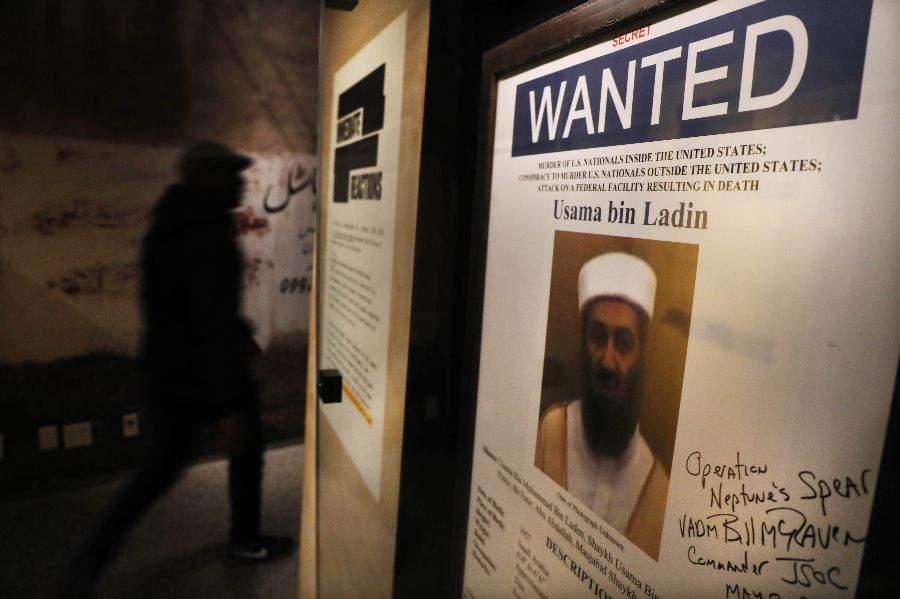
In particular, manuals for the manufacturing of bombs, drugs, bioweapons and even nuclear weapons that suicide attackers use in terrorist attacks can be found on the Internet. In 1995, the Oklahoma City bombing was the work of lone-wolf terrorists who used a self-made truck bomb to detonate a federal government complex, killing hundreds of people, including kindergarten children. The carefully planned September 11 attacks were works of terrorists who hijacked four US planes through simple tools like box cutters, and effectively rewrote world history.
(iii) Globalisation and its discontents
Thirdly, a few structural contradictions are results of political systems and globalisation; there is simply no solution to it. For example, the financial crisis, economic inequality, unemployment, inflation, climate change, cross-border pollution, distribution of water resources, drug slums, homelessness, middle-income trap and so on, are difficult issues to tackle for any single government.
There is also a serious lack of mechanisms for international collaborative governance of these issues. With resentment and frustration constantly accumulating in the society, any minor discontent is enough to trigger a large-scale social movement. The Arab Spring, for instance, was sparked off by a Tunisian man who set himself on fire after he was banned from selling fruit as his livelihood.
An anxious world is difficult to govern
A combination of the aforementioned three factors make the world an anxious one that is difficult to govern, and this is especially so in democratic countries. In a fragmented society, not only are democratic elections unable to forge a consensus and resolve conflicts, they become the battleground for party duels and intensification of conflict.
As campaigning comes with a hefty price tag, the power of money is magnified. Elite democracy takes over the reign from mass democracy once more, and government credibility constantly hits record lows.
While liberal democracy allows room for protests to take on a multitude of forms, conflicts remain difficult to resolve and issues are left without a cure. An accumulation of anger ensues, resulting in protests that go above the law and down the route of extremism and even violence. In order to please voters, the ruling party often condones illegal actions, closing one eye to violence and destruction, resulting in a vicious cycle.
The Chinese example
In the case of China, during the early days of reform and opening up, Deng Xiaoping established the national strategy of "stability overrides all else" (稳定压倒一切). This is a major lesson of China's modern history.
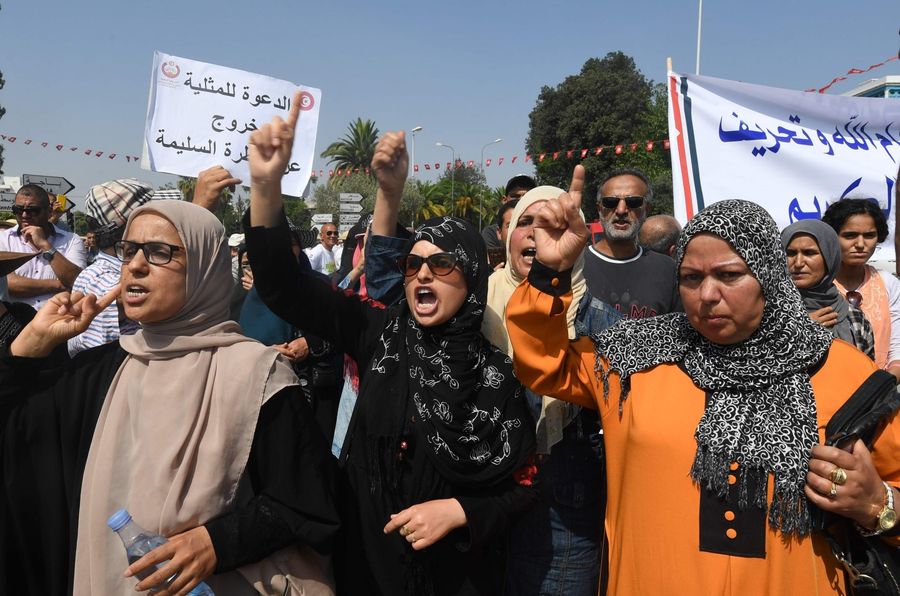
Compared with other countries, China is most equipped to tackle social unrest: hundreds of millions of CCTVs cover the land; world-leading facial recognition technology is in its hands; authorities are able to monitor each person's mobile devices and communication channels; the government controls all major databases and uses it to build a social credit system; over ten million people work in the political and security domains; grid management systems divide the community into sub-groups, with a designated leader making regular reports to the authorities; strict laws and surveillance are imposed on non-governmental organisations; and dissidents are under the watchful eye of the security units.
On top of that, the ruling party has massive propaganda machines, controlling all major media and publishing companies, and exercising strict surveillance on social media. Party members and organisations cover every corner of the land, taking action to uphold stability (even at the expense of the law), greatly oppressing society.
This "evil" stems from the prejudice and presupposition of the effects of liberalism on human nature and that "absolute power corrupts absolutely". This is the product of Western culture and tradition, and may not be suitable for all countries in the world.
This greatly damaged China's reputation, accounting for the Hong Kongers' fear of China, and is also the main reason behind the current large-scale and prolonged protest - the Hong Kongers do not wish to live with the thought that they can't escape the long arm of the Chinese state. Western countries also consider the rise of China under such a system the greatest threat to their values, lifestyle, and world order.
However, this viewpoint is one-sided; it only considers the "evil" of the system and disregards the "good" side. This "evil" stems from the prejudice and presupposition of the effects of liberalism on human nature and that "absolute power corrupts absolutely". This is the product of Western culture and tradition, and may not be suitable for all countries in the world.
For example, with regards to the alleviation of poverty, none of the Chinese officials needed the votes from people living in marginalised and remote areas of China to remain in power; they could simply ignore their existence. However, the Chinese Communist Party (CCP) spared no effort in alleviating poverty; it invested a huge sum of money and made long and determined efforts in alleviating it, creating a miracle in poverty reduction. In the past 20 to 30 years, over 70% of the world's population lifted out of poverty came from China. Various levels of the government have outlined an ambitious plan to completely eradicate poverty by 2020.
What can be predicted is that regardless of what Western countries are portraying to the world, they have to adopt many Chinese practices proven effective, even if covertly...
China's streets are safer than a lot of other Western countries and the speed at which China's economy is growing is unprecedented. The Chinese society has maintained much vitality and innovative power, and after 20 to 30 years of continual expansion, economic inequality seems to have finally reached a turning point. All these testify against the "evil China" narrative.
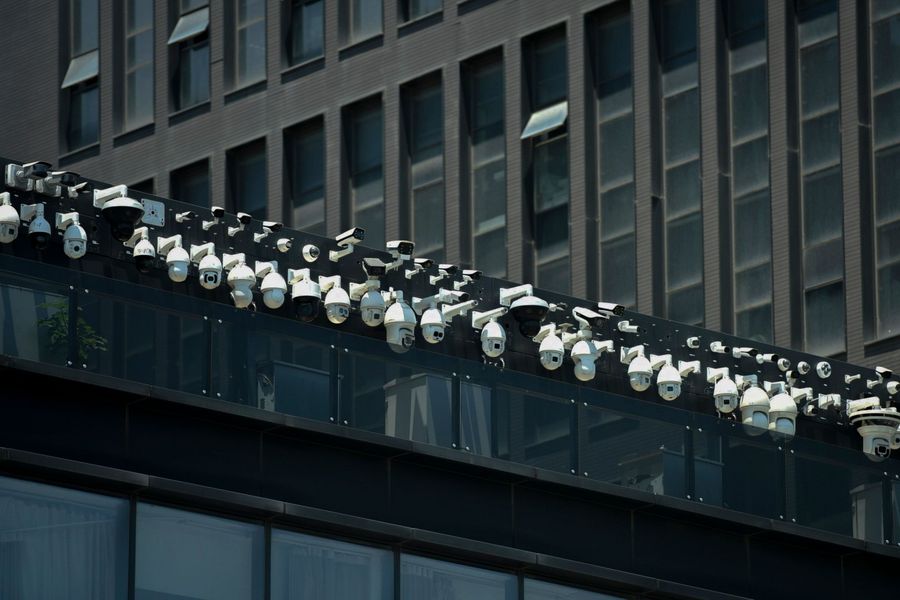
In comparison, the US virtually never lives a day without gun violence. In 2017, a bored and rich Caucasian man opened fire at a crowded outdoor concert from the window of his luxury hotel suite in Las Vegas, killing and injuring more than 800 people. There has also been no lack of terrorist attacks in European countries. In a recent London Bridge terror attack, the two victims who died were from Cambridge University and had even tried to help their perpetrator to reintegrate into society. The attacker, a prisoner released on parole, had viciously attacked his victims with knives taped to his wrists.
In the face of these challenges, extreme idealism and stubborn adherence to "political correctness" have left these countries in helpless predicaments. What can be predicted is that regardless of what Western countries are portraying to the world, they have to adopt many Chinese practices proven effective, even if covertly. This is because Western countries and China essentially face the same problems in the era of mass protests.
While the ideals of liberal democracy are laudable and its values generally accepted, it is severely lacking in its capabilities of governance. Various parties do anything to get elected during campaigns and veto each other in policy-making. In the midst of their intense infight, the government is often paralysed. The political process is ill-suited for the fast-changing world, and a main reason for the decline of Western countries.
China's achievement is testimony that authoritarianism can be put to good use. The Chinese system has governance capacity to tackle the emerging "troubled times". Authoritarianism must be coupled with good governance, and cannot simply be an exercise of power. However, this does not mean the "evil" that the Westerners see is non-existent.
Looking at the numerous cases of corrupt officials exposed in recent years. China has not escaped from the "history cycle"*. The challenge that the CCP faces is to prevent state power from serving the interest of the few, uphold social justice, increase its citizens' "sense of gain" and confidence for the future - it must not allow such a big country to fall into a state of oligarchy where minority elites and organisations have the power to manipulate the state machine to achieve their personal goals in power struggle.
The state must have the power to uphold justice. Over recent years of large-scale and continuous propelling of anti-corruption campaigns, China has made rapid improvements in this aspect. The challenge now is in making these good practices the norm, guaranteed with permanent institutions, cultural and societal practices - not simply waiting for a "good emperor" to magically appear and turn these into a reality. This is a problem that remains unresolved over the dynastical cycles in history, including the Republic of China era. Clearly, China's own traditions do not offer a solution. China must learn from other countries.
*In a famous dialogue in 1945 between one of the founders of the China Democratic League, Huang Yanpei, and founding chairman of the Chinese Communist Party, Mao Zedong, the former asked the latter how China could learn from the lessons of history and not let corruption be its demise. Mao answered that they have found a new path called democracy.
